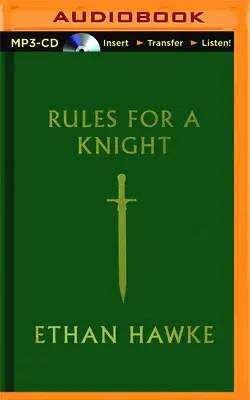It is 1483, and Sir Thomas Lemuel Hawke, a Cornish knight, is about to
ride into battle. On the eve of his departure, he composes a letter to
his four young children, consisting of twenty virtues that provide
instruction on how to live a noble life, and on all the lessons, large
and small, that he might have imparted to them himself were he not
expecting to die on the battlefield.
"Why am I alive? Where was I before I was born? What will happen to me
when I die? Whatever well our lives are drawn from, it is deep, wild,
mysterious, and unknowable...." Rules for a Knight is many things: a
code of ethics; an intimate record of a lifelong quest; a careful
recounting of a knight's hardest won lessons, deepest aspirations, and
most richly instructive failures; and an artifact, a relic of a father's
exquisite love.
Drawing on the ancient teachings of Eastern and Western philosophy and
religion, on literature and poetry, and on the great spiritual and
political writings of our time, Ethan Hawke has written a parable
that--in the story of a young man's journey toward a life of
authenticity and meaning--captures the instinctive movement of the heart
toward truth and beauty. Rules for a Knight has the appeal of
Arthurian legend; the economy of Aesop; and the vitality, intelligence,
and risk-taking that could only emanate from Ethan Hawke.

